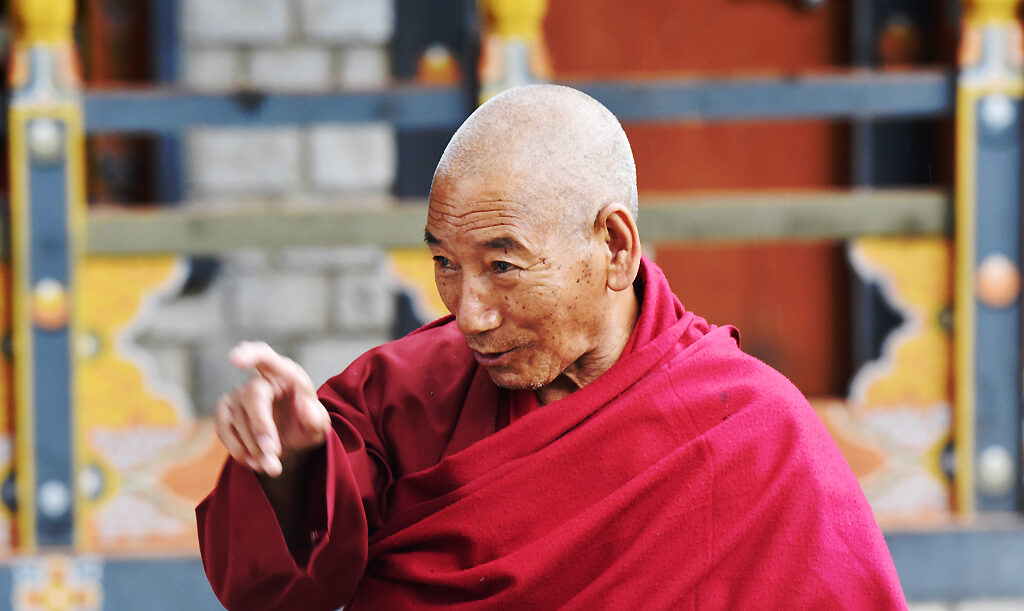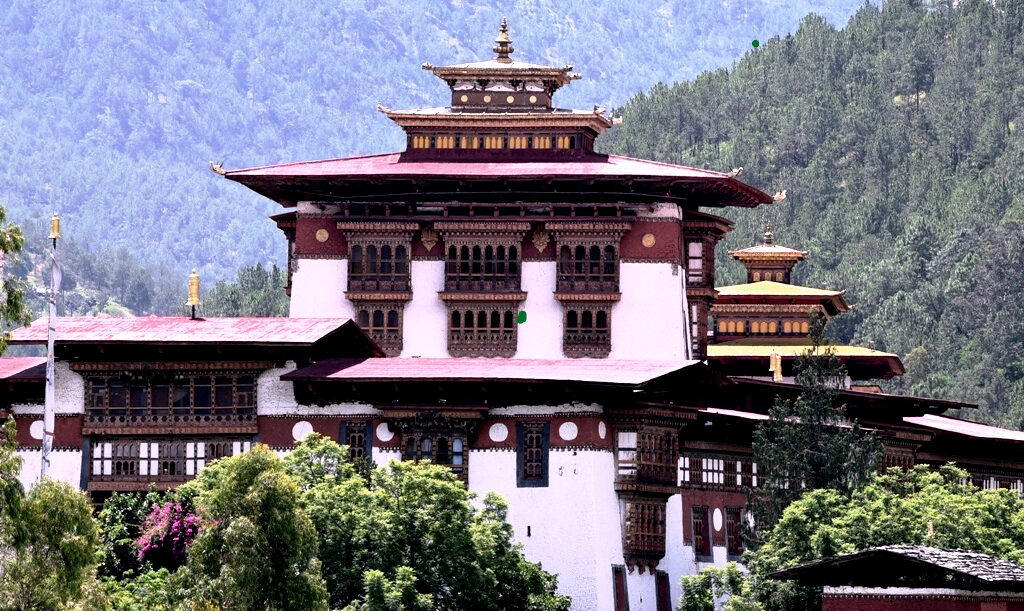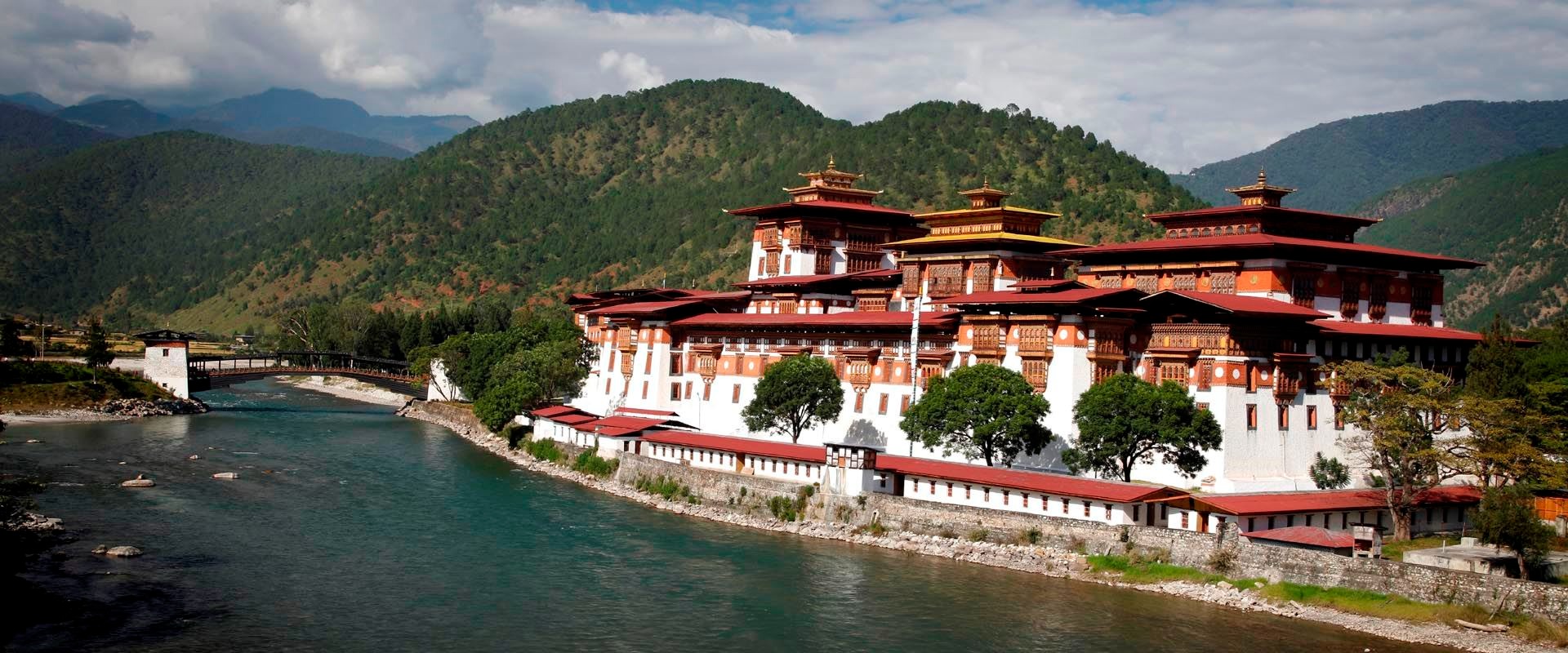
BHUTAN
Bhutan is rightly known to the world today as the last Shangri-La. The few lucky visitors, who make the lifetime journey to this extraordinary land, realize that there is no other destination like this land of pure and exotic mysticism.
It was the mighty Himalayas that protected Bhutan from the rest of the world and left this Himalayan Jewel blissfully untouched. The Drukpa Kagyupa sect of Mahayana Buddhism provided the essence of a rich culture and fascinating history. The Bhutanese people protected this sacred heritage and unique identity for centuries by choosing to remain in a jealously guarded isolation.
Druk Yul or the ‘Land of Thunder Dragon’ as referred by its natives, the princely Kingdom of Bhutan is a landlocked country, encompassing an area of 38,394 square kilometres. It is bordered by India in South and South-West and Tibetan autonomous region of China in the North and North-West respectively. Virtually the entire country is mountainous, and ranges in elevation from 240m along the Indian border to the 7,554m, Kulha Gangri peak on the Tibetan border. These two extremes frame a landscape which stretches from sub-tropical to arctic like conditions.
With a relatively small population of little above 750,000 people, the Bhutanese enjoy a sustainable lifestyle which they inherited from their forefathers. Bhutan’s population is, in many ways, one large family. About 70 percent of the people still live on subsistence farming, scattered in sparsely populated villages, across the rugged terrain of the Himalayas. Buddhism, prevalent in the country since the 7th century, continues to play an important role in their peaceful lives.
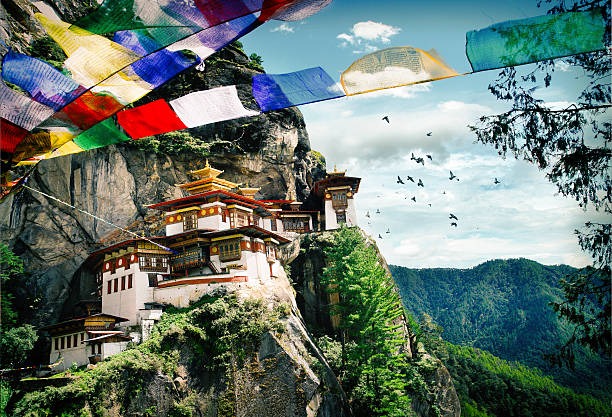
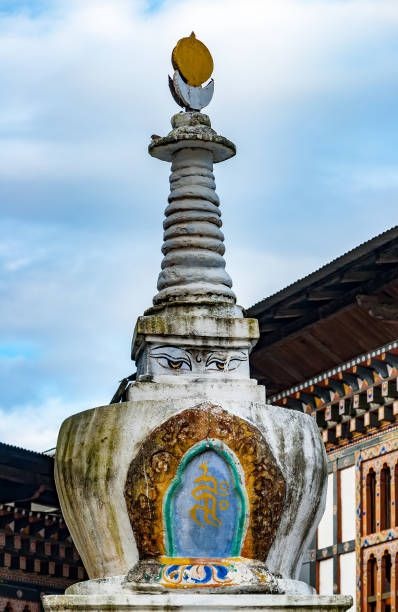
Having always been politically independent, a rich and distinctive culture developed in the country over the ages. Perhaps the most important single factor in the moulding of Bhutanese character and thought has been the teaching of Lord Buddha, whose eternal truths were first brought into the country from Tibet over the high, snow-bound mountain passes by the great Indian saint, Guru Padmasambhava.
Bhutan is the only country in the world to have adopted Mahayana Buddhism in its Tantric form as its official religion. The Buddhist faith has played and continues to play a fundamental role in the cultural, ethical and sociological development of country and its people. Monks are held in great respect and play an active part in community life. The influence of Tantric Buddhism since the mid 7th century has irrevocably shaped Kingdom’s history and destiny, and has had an indelible and enlightening impact on the Bhutanese way of life.
All Bhutanese art, dance, drama and music has its roots in the Buddhist religion. And this Buddhist art has a much different purpose from other contemporary art, being more subjective, symbolic and impersonal. Unlike many other countries, arts, ceremonies and festivals of Bhutan are not remnants of a bygone age but they are still practiced and performed because they continue to have religious and spiritual significance and they are the manifestation of a living culture.
Nowhere in the Himalayas is the natural heritage more rich and varied than in Bhutan. In historical records, the Kingdom was called the ‘Valley of Medicinal Herbs’, a name that still applies to this day. About 72.5 per cent of the country’s area is still under forest cover. For centuries, Bhutanese have treasured the natural environment and have looked upon it as the source of all life. This traditional reverence for nature has delivered Bhutan into the 21st century with an environment still richly intact. Fortunately for Bhutan, maintaining a balanced natural ecosystem remains the central theme of its development process. The country’s development policies disregard sacrificing its natural resource base for short term economic gains and are consistent with the central tenets of sustainable development, environmental conservation and cultural values.
With its beautiful and largely unspoiled Himalayan setting, its rich flora and fauna and its vibrant Buddhist culture, Bhutan has become an increasingly popular destination for international travellers. The Royal Government of Bhutan recognizes that tourism is a world-wide phenomenon and an important means of achieving socio-economic development particularly for developing countries like Bhutan. It also recognizes that tourism, in affording the opportunity to travel, can help in promoting understanding among peoples and building closer ties of friendship based on appreciation and respect for different cultures and lifestyles. Towards achieving this objective, the Royal Government, since inception of tourism in the year 1974, has adopted a very cautious and judicious approach to growth and development of the tourism. The Bhutanese tourism industry is based on principle of sustainability that is ‘tourism must be environmentally and ecologically friendly, socially and culturally acceptable and economically viable’. Endowed with a rich living culture and pristine natural environment complemented by a development philosophy that espouses balanced growth, Bhutan continues to gain momentum as an emerging high-end destination in South-Asia.

